Finelo Review — What Users Say Before You Pay
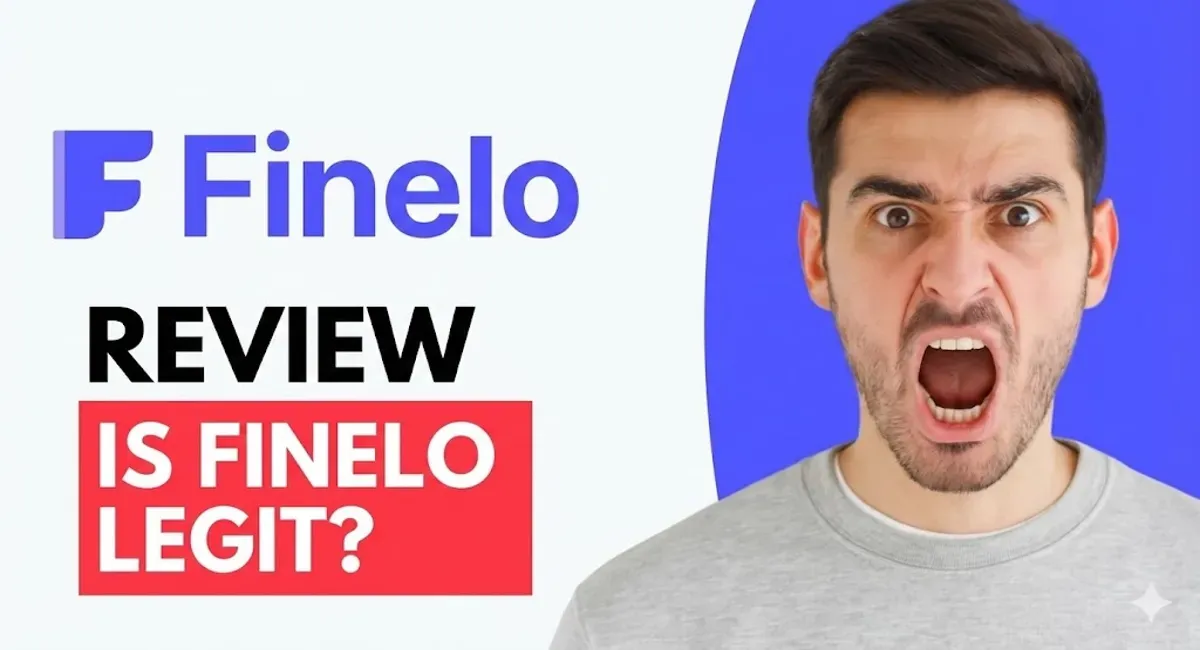
I saw an ad the other day. It promised to make trading easy. You could learn everything on your phone. It looked so cool and simple. The app was called Finelo. It was created by a group called Zimran.io. I almost downloaded it. But something felt a bit… off. So, I decided to do a big search online. I found a very long, detailed report about it.
I spent a lot of time reading it. It was full of big words and complicated stuff. I want to share what I learned with you. But I will use simple words. I want to help you understand. Many people search for Finelo reviews to find out whether the app is trustworthy. This post summarises what I found from public information and user reports to help you decide.
Summary: From my research, Finelo appears to be a legitimate company with real people, real services, and a functional app. It has strong reviews online, with an average rating of 4.6 on Trustpilot. Some complaints seem to be about low-value content and pricing or subscription plans, likely because much of the content is AI-generated. Overall, Finelo is well-reviewed and can be useful for people who want to learn about personal finance.
Disclaimer: This article is based on publicly available information and user reports. It is intended as commentary and general information only and does not claim to represent the company's official position. Readers should consult Finelo’s official terms and support channels for the most up-to-date information. Screenshots and brand names are used for identification and commentary purposes only.
Value this post? Join as a supporter to keep this site alive and get ad-free updates with my best ideas.
What is Finelo? What Do They Promise?
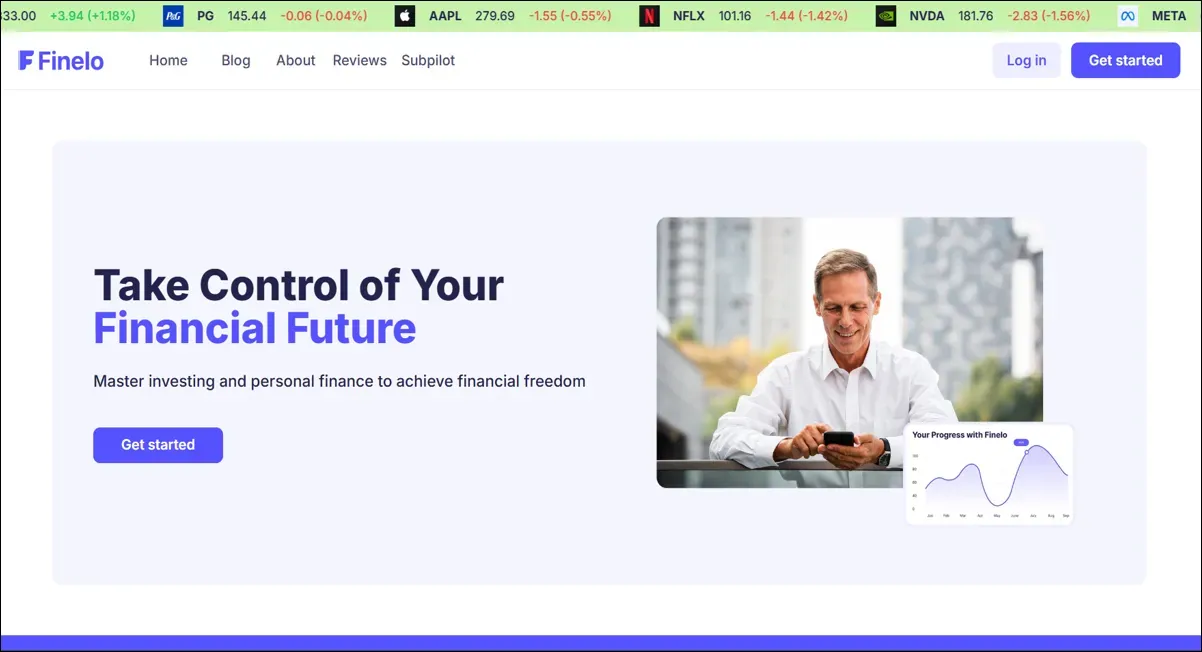
First, let's look at what Finelo says it is. When you go to the app store, it looks very professional. They call it "The All-in-One Trading Learning Platform & Tools." They say it's for new people and also for experts. It sounds great, right?
They have two big promises.
- AI Chart Analyser: This is their coolest feature. They say you can take a picture of any trading chart. Like, from stocks or crypto. Then, their special AI will look at it. It will tell you about trends and important price levels. They say it makes trading "Smarter, Faster." This is a big hook. It sounds like a secret weapon for trading. For someone new, technical analysis is very hard. So a tool that does it for you is very tempting.
- Expert Courses: They also say they have "Pro-Level Courses." These courses teach you trading strategies, how to manage risk, and even the psychology of trading. To make it fun, they have quizzes and trading simulators. It sounds like a school in your pocket. You can learn to be a pro trader all by yourself, at your own speed.
But there is a small text at the bottom. The disclaimer. It says Finelo is for education only. It does not give financial advice. It says you should always talk to a real financial advisor before you invest real money. This is a normal warning.
The app is free to download. But to use the AI tool or the courses, you must pay. You have to buy a subscription. As per the report I shared with you, this is where the problems begin for some people. The app itself is vast, over 1 GB. So it feels like a serious, professional product. They use all the popular words like "AI-powered" and "Master Trading" to make you feel like you are getting something very valuable.
Who is Actually Behind Finelo?
This was the most surprising part for me. Finelo is not run by some unknown people in a basement. The company behind it, Zimran.io, looks very serious and professional. The bosses have amazing resumes.
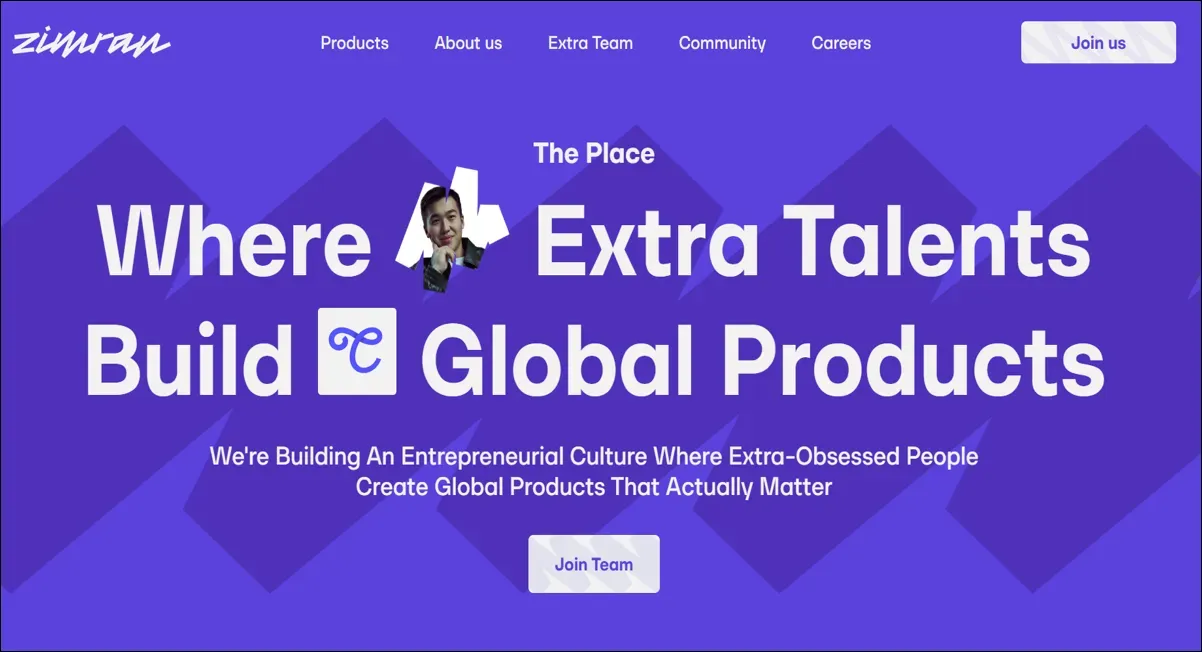
The company structure is like a puzzle.
- Finelo Limited in Cyprus: When you download the app, the provider is a company called Finelo Limited. It is registered in Cyprus. This is a country in the European Union. Many online companies register there. It has a real address and a business number. It looks all official.
- Zimran Ltd. in Kazakhstan: But the main parent company seems to be Zimran Ltd. This one is registered in Kazakhstan. Their main website, zimran.io, is for this company. So, you download an app from a Cyprus company, but the real boss is in Kazakhstan.
Why do they do this? Based on my research and knowledge, I've learned that many companies choose to register in Cyprus because of the country's numerous benefits. First of all, Cyprus offers one of the lowest corporate tax rates in the EU—12.5%—which benefits companies significantly. It is also a full member of the European Union, which adds to its attractiveness as a business hub.
It's not that these companies are trying to scam anyone; rather, they are taking advantage of the legitimate benefits that Cyprus provides.
Founders & Decision Makers
Now, let's talk about the founders. These are not anonymous hackers.
- Zhanibek Sydykov (CEO): This man is a big deal. He was a Partner at a venture capital firm. This means he invested in other tech companies. He was on the board of directors for big companies. He has a degree in finance. He looks very credible.
- Eduard Tupikov (CMO): He is the marketing boss. He worked at a big company called PwC. He has a Master's degree. He even writes articles about AI and finance. He positions himself as an expert.
- Arman Nurgaziyev (CTO/CEO): He is another co-founder and is listed as the CEO of the Kazakhstan company.

Zimran.io says on its website that it is a "well-funded and already profitable business." They show a big team of over 100 people. They even have their own "Zimran Academy" to train new people. They claim to have over 2 million premium users.
I don't see signs that the company is trying to hide anything. Their team members, including the CEO, are publicly listed with their real profiles and educational backgrounds, which suggests transparency. From what I’ve observed, the people behind the company appear legitimate, and this reduces the likelihood of deceptive behaviour.
How Finelo Makes Money
Okay, let's get to the most important part. The part that makes so many people angry. How does Finelo make money? The answer is simple: subscriptions. They have no free trials. Many Reddit users find it is not worth paying.
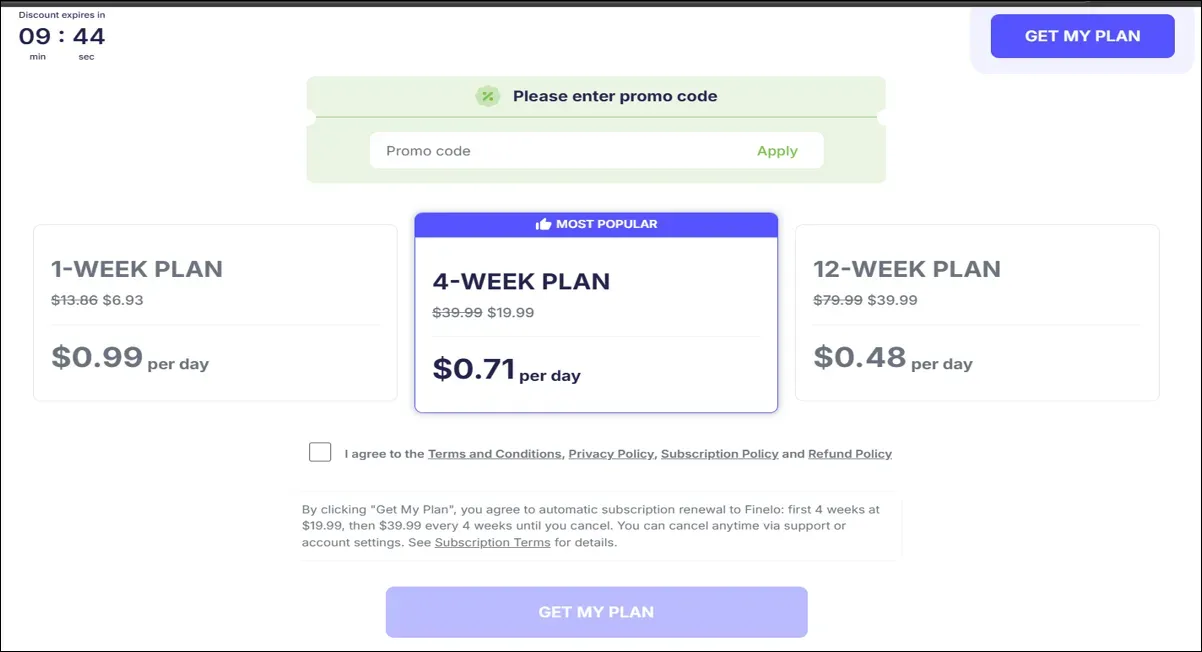
The app is free to download, but it is useless without paying. You must subscribe to learn anything. This is normal for many apps. It is not like ChatGPT or Gemini, which offer a free subscription before you upgrade to the paid plans. It is the same for other apps from the same parent company, Zimran.io, like Coursiv and Prosperi.
Based on my research, some of the complaints I have seen on Reddit regarding hidden auto-renewals or charges after cancellation. However, when I reviewed the subscription pages myself, the terms were clearly stated, including how the plans renew. From what I observed, the company does display its pricing and renewal details on the payment page, so users need to read those terms carefully before purchasing.
In my review of the publicly available payment pages, I did not find evidence of hidden auto-renewals. However, some users have reported unexpected charges, so check the subscription terms and monitor your payments closely if you try it.
I also came across complaints about refunds, but the refund policy clearly explains the conditions under which a refund can be requested. As long as the platform has been used as stated in the policy, customers can reach out to the support team to request one.
Overall, the company operates transparently and does not appear to be using hidden or deceptive practices. Many negative comments online may stem from misunderstandings or frustration. So it's always best for users to review the subscription and refund terms themselves.
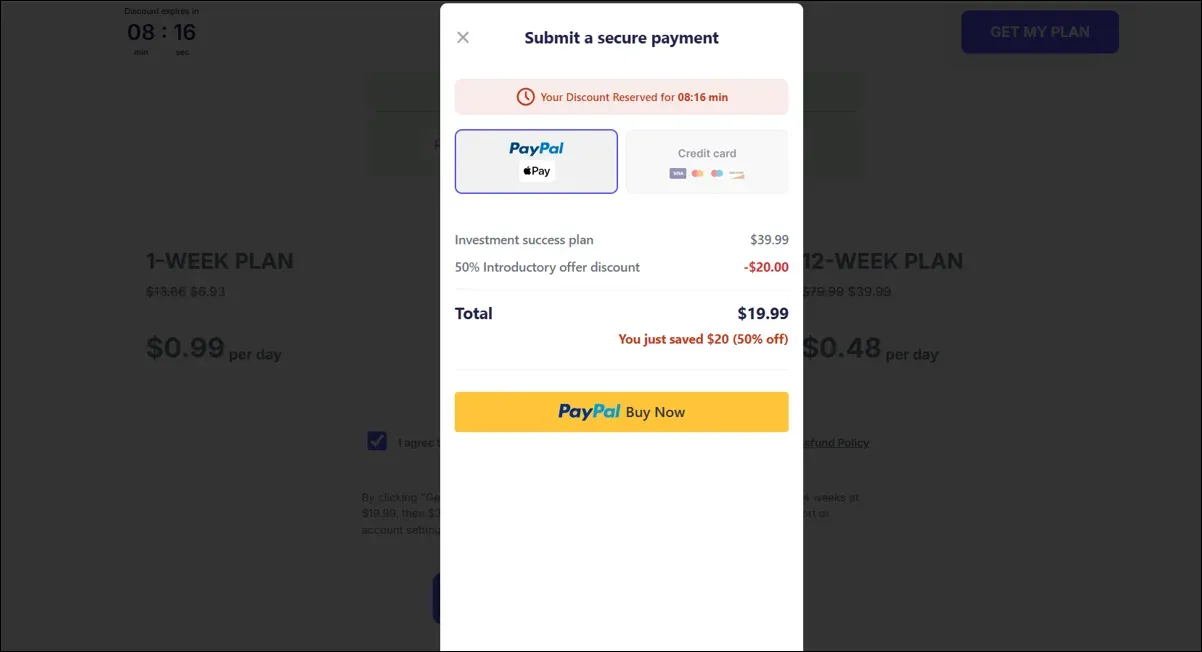
There will always be a few people who go to the App Store or Google Play and complain. The support team cannot reply to everyone individually, so they use an automated system. Some people don't like that, but it's not really the company's fault. No company can respond to every review.
I also saw people on Reddit and Quora saying the lessons were basic. A few speculate AI may have assisted with some content. I cannot confirm the production process, but the lessons do feel introductory in scope.
Finelo's refund policy states the conditions under which refunds may be granted. Some users report receiving refunds in certain cases; others have reported frustration. Results appear mixed.
What Do Real Users Say? The Good &The Bad
When you look for Finelo reviews, you find two very different kinds of stories. It's like reading about two different apps.
The Good Reviews
Finelo has excellent and positive reviews almost everywhere. On Trustpilot, Reviews.io, the Google Play Store, and the App Store, it has strong ratings. For example, on Trustpilot it has around 4.6 stars, on the App Store around 4.7 stars, and on Google Play around 4.3 stars. This shows that many people like the app and leave good comments. I also checked these reviews myself, and they seem genuine to me.
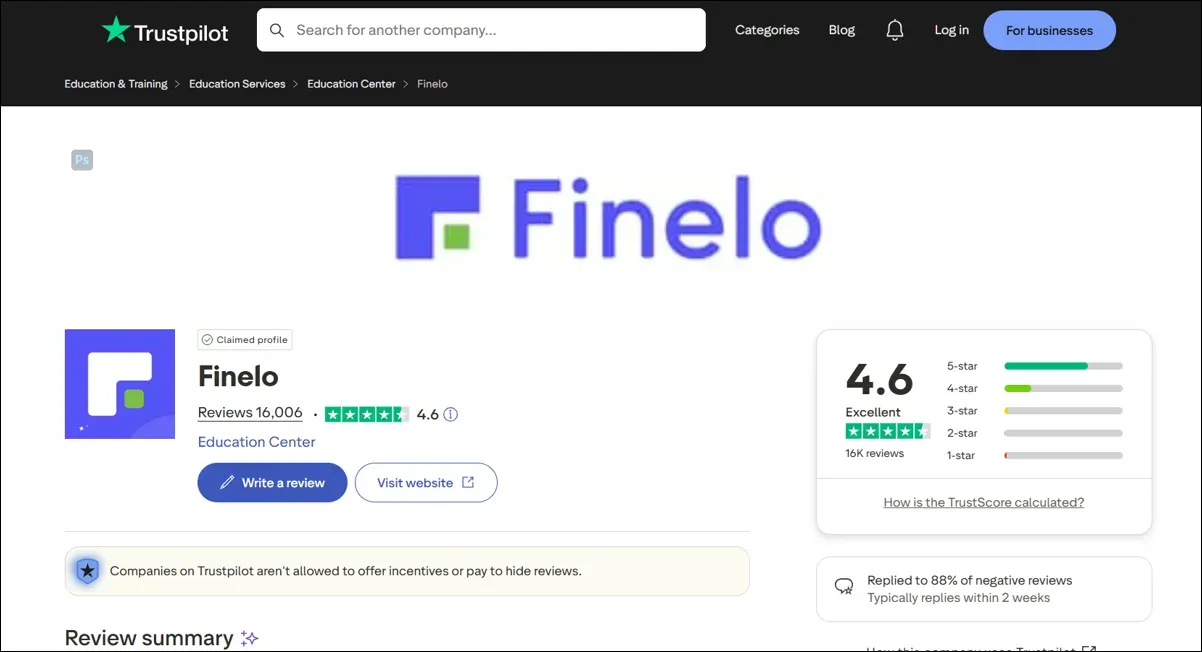
From what I know, Trustpilot tries to avoid fake or manipulated reviews, and when I wrote a review there in the past, it asked me to prove I was a real user. In my view, the good reviews on Finelo seem authentic.
The Bad Reviews
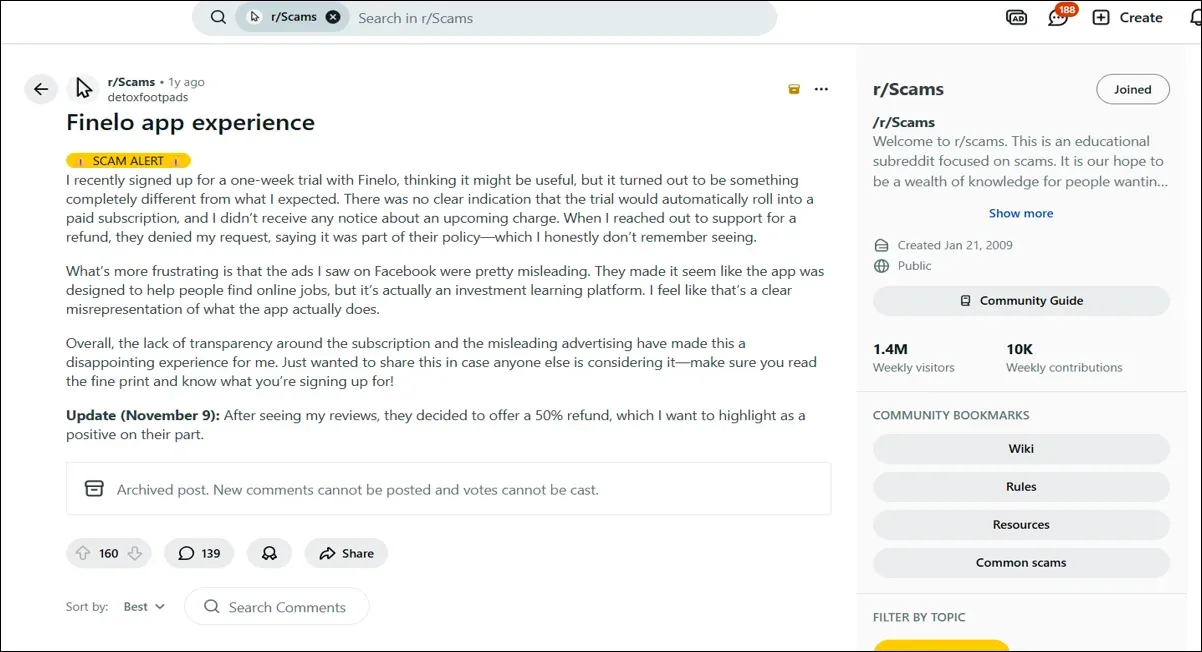
Now, if we talk about the bad reviews, there are some. On Trustpilot, you can find a few 1-star or 2-star reviews, and on Reddit and Quora, you will see more complaints.
Most of these complaints are about billing, subscriptions, or refunds. But based on my own research, I didn't find anything hidden or unclear, because Finelo explains its subscription terms and refund policy on the payment page and on their website.
In a review of Finelo's public pricing and payment pages, I did not see hidden auto-renewal language. The renewal terms are presented on the payment screen. That said, some users have complained about unexpected charges. I couldn't independently verify each claim.
On Reddit and similar platforms, you will naturally find more negative posts because anyone can write anything there without much filtering. So it's important to look at both sides and not just rely on one place or one comment.
One more complaint people have is that the content is basic and AI-generated. But I cannot verify how Finelo creates or publishes its content.
But the other complaints, saying the company is a "scam" or "fraud", do not match what I saw. I didn't find misleading ads, tricky billing, or anything like that.
They seem clear about their terms, and you can read all their policies—refund policy, subscription policy, terms and conditions—directly on their website.
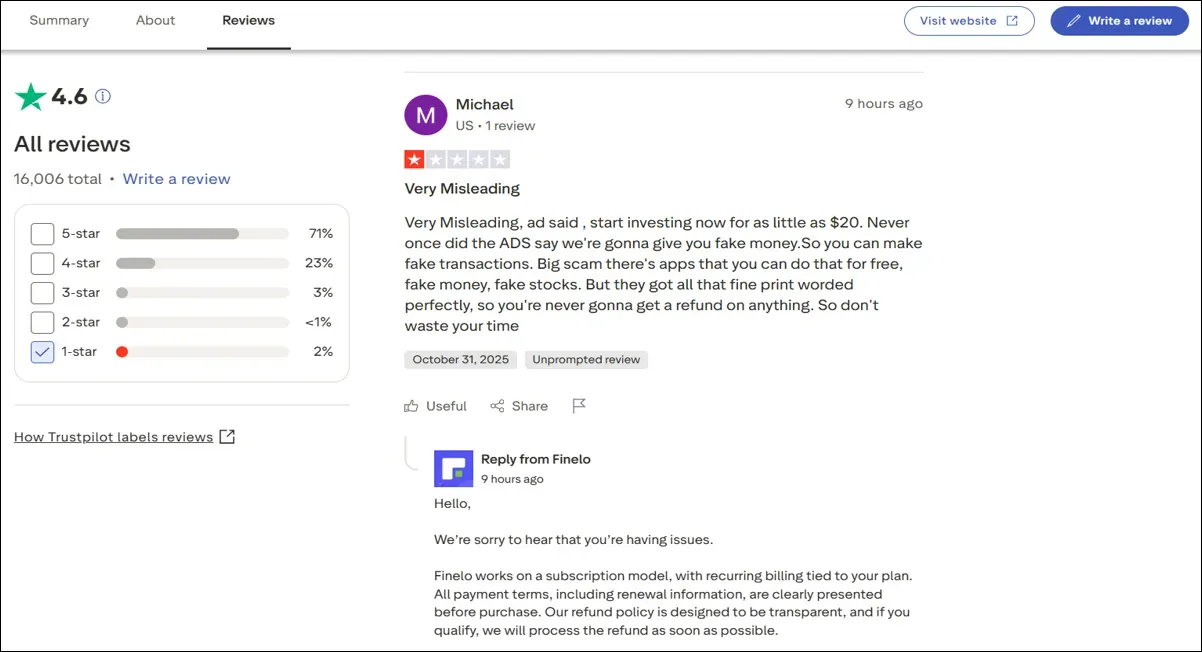
I also checked ScamAdvisor, and it shows a trust score of around 50/100. It has tagged Finelo as suspicious. I don't have any strong comment about that, but it's something people may want to check on their own.
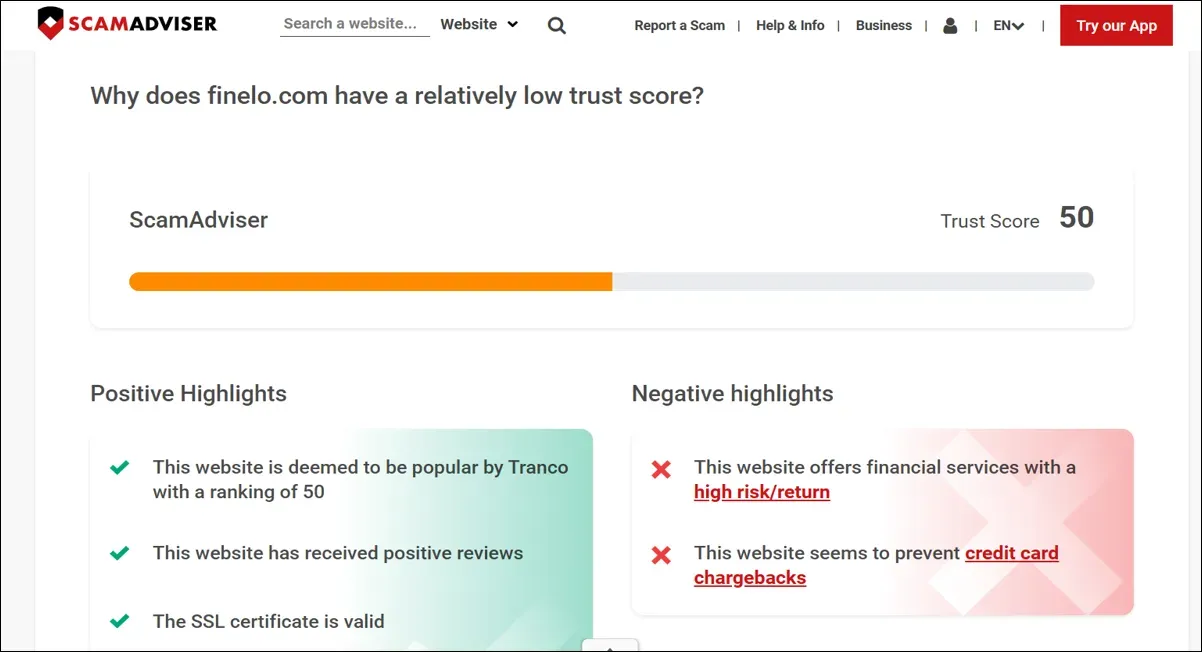
My advice is to look at multiple sources, such as Trustpilot, Reddit, and others. Then decide for yourself whether Finelo is suitable for you. Just keep in mind that platforms like Reddit do not filter posts, so anyone can write anything, and not all reviews may be fully reliable.
Has Any Regulator Commented on Zimran’s Advertising?
In January 2025, the UK Advertising Standards Authority (ASA) reviewed a YouTube advertisement for Prosperi Academy, a different educational product owned by Zimran Ltd. The ASA found that some aspects of that ad could mislead viewers if interpreted as guaranteeing financial outcomes.
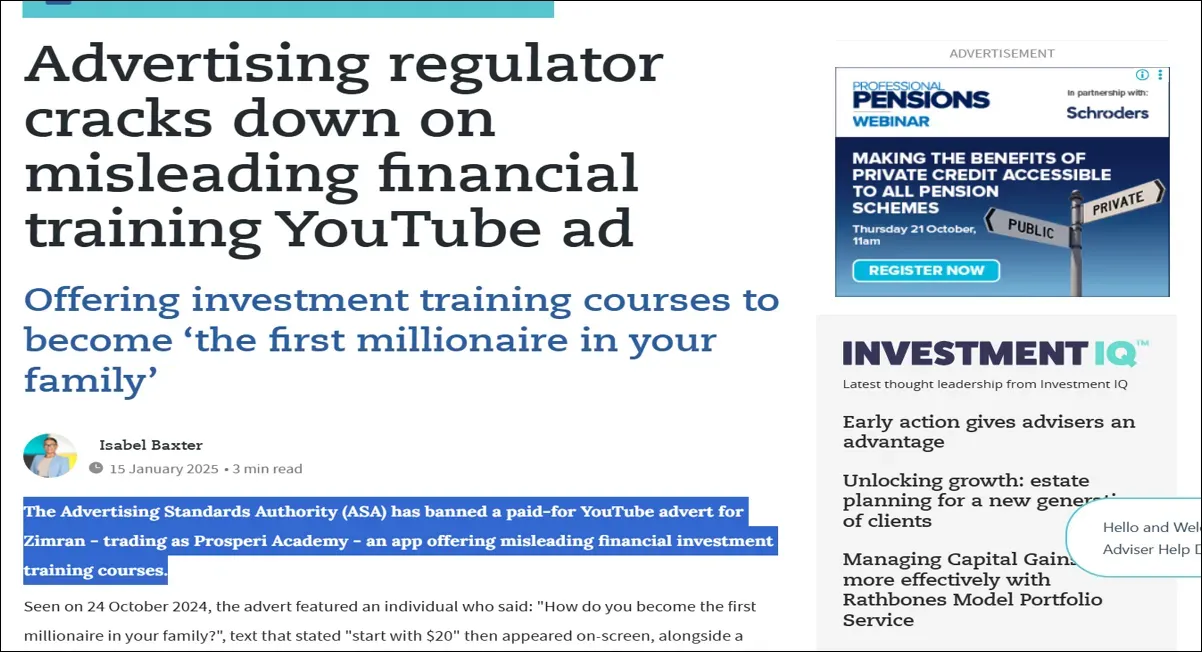
According to the ASA's published ruling, the investment examples shown in the advertisement were simulated figures rather than actual financial results, and the risk disclosures were insufficiently prominent.
The ASA instructed that the advertisement should not appear again in the same form.
Zimran Ltd. responded to the ASA by clarifying that:
- The figures shown were simulations, not real returns.
- The claims in question were voluntarily removed from their advertising.
- And risk warnings were updated to be clearer and more prominent.
Following these updates, the ASA reported no further actions or follow-up concerns regarding that case.
This ruling concerns an advertisement for Prosperi Academy, not Finelo itself, and does not imply that Finelo is fraudulent or misleading. It is simply a reference point for understanding how regulators sometimes assess marketing materials in the financial education space.
Is Finelo Worth the Money?

So, even with all these problems, is the education inside Finelo good? Is it worth the risk?
The report I read compared Finelo to other options; the conclusion was obvious: Finelo is not a scam nor a fraud, but it provides very poor or basic content.
Many users say you can learn more from free videos online. So you are paying a subscription for information that is free everywhere else.
There is no clear alternative to Finelo. If you want to try it, you can start with their one-week plan, which costs around $1 or even less. You can see if it is valuable for you.
If you are a beginner, I think it may be a little helpful. But if you are already at an intermediate level and want to learn more about trading and investing, then you should go to professional financial education institutes or platforms.
Personal finance and investing involve real money and real risks. So it's better to learn from well-known and trustworthy sources.
Finelo gives you more visual content and AI-powered tools to help you learn about investing and trading.
On the other hand, you can also use Free AI Tools. Using Gemini or ChatGPT, you can understand a concept according to your needs.
Use Free AI Tools For Personal Finance Education
So, if you give a simple prompt to Gemini and want to understand a concept better, it can explain the idea clearly and break it down step by step. It can conduct deep research across multiple sources on the internet and may also create visual explanations for you using its image tools. If you want, it can even make simple video-style explanations to help you better understand the topic.
Gemini can also help you create small apps or tools. For example, if you want to calculate something or understand a concept with charts or simple math, you can build a basic app that shows everything in real time. This makes learning easier because you can see the idea more visually. It can even analyse YouTube videos and explain them in a simpler form.

In my case, for investing topics, I use Gemini a lot. I'm not telling everyone to do the same, but I use it because it helps me.
What I do is: I find a YouTube video on an investing topic, copy the link, and ask Gemini to break it down for me. Then I ask it to explain the main points, give examples, and create clear images so I can better understand it. Sometimes I also ask it to make a small app to calculate numbers or display charts so that I can learn the topic in a more practical way.
If you go deeper and give better prompts, you get better answers. So you can learn almost everything for free by using Gemini. That is what I’m trying to say.
But if you still want to try Finelo, you definitely can. From what I have seen, the company seems transparent with its customers, and they are improving day by day. I have no objection to that. You can go ahead with it. But you can also learn all of these things for free, that's my point.
My Final Thoughts: Is Finelo a Scam?
After reading everything, here is my simple conclusion.
Is Finelo an outright scam that steals money and disappears? Based on publicly available records and user reviews:
No, the company appears to be legally registered, and the app is real.
User experiences vary: some people find the content useful, while others criticise pricing or support. My research suggests the product is legitimate, but beginners should read the terms carefully and decide for themselves.
My recommendation: If you are a beginner, you can try the short plan to see if it helps. If you do try it, monitor charges and cancel during the trial period if you are not satisfied. Keep proof of any cancellation or correspondence with support.
I hope this long post helped you. I just wanted to share what I found, in simple language, to help others learn about this investing education platform.
P.S. Normally, I recommend an alternative program to the one I review. But for this Finelo review, I’m not recommending any alternatives.
Personal finance is something truly personal, and only someone with proper financial education can suggest what products you should use.
I don’t recommend anything for you to depend on, instead, I encourage you to educate yourself. That’s why I’m not recommending any alternative to Finelo.
Value this post? Join as a supporter to keep this site alive and get ad-free updates with my best ideas.
I have also written a blog post on a new scam program called My Mobile Machine. You should read it and beware of such programs.